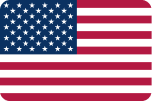MOJAVE – US Phase 1/2a study of DSR 2.0 for treatment of heart failure
- Previously reported strong data maintained after three-months follow-up:
- Diuretic response remained nearly normalized, with a mean increase of 326% in six-hour urinary sodium excretion vs baseline
- All three patients remained on no or low dose loop diuretics, with a reduction of at least 95% vs baseline
- Randomized cohort of up to 30 additional patients planned to commence following US market approval of the alfapump®
Ghent, Belgium – 25 March 2024 – Sequana Medical NV (Euronext Brussels: SEQUA) (the “Company” or “Sequana Medical“), a pioneer in the treatment of fluid overload in liver disease, heart failure and cancer, today announces final three-month follow-up data from all three patients in the non-randomized cohort of MOJAVE, the Company’s US Phase 1/2a study of DSR 2.0 for treatment of patients with diuretic-resistant heart failure, confirming the dramatic and durable improvement in their diuretic response and virtual elimination of loop diuretic requirements. These final data support DSR’s mechanism of action as breaking the vicious cycle of cardiorenal syndrome.
Dr. Oliver Gödje, Chief Medical Officer of Sequana Medical, commented: “These final data from the first three patients in the MOJAVE cohort are highly encouraging and together with the positive data from our RED DESERT and SAHARA proof-of-concept studies, indicate the potential for our DSR therapy as a promising treatment for diuretic-resistance and cardiorenal syndrome in heart failure.”
Ian Crosbie, Chief Executive Officer of Sequana Medical, added: “We continue to be excited about our DSR program and its potential to transform the treatment of diuretic resistance and and cardiorenal syndrome in heart failure. Unlike loop diuretics which, on average, have a negative impact on renal function and diuretic response, DSR has again demonstrated its potential to restore renal health and control of volume status. We look forward to starting the randomized controlled cohort in the MOJAVE study and are confident that data from the study will deliver a robust clinical package enabling a strategic partnership in this large and growing global market.”
Final data from non-randomized cohort of MOJAVE study – confirming previously reported strong data[i]
All three patients treated in the non-randomized cohort of the MOJAVE study had heart failure with preserved ejection fraction (HFpEF) and severe diuretic resistance at baseline (mean furosemide equivalent dose of 1,227 mg per day). At the start of the study treatment period, loop diuretics were withheld, and patients were treated with DSR 2.0 up to daily for four weeks, followed by a three-month safety follow-up period. All three patients successfully completed the three-month safety follow-up period.
Dramatic improvement in diuretic response and stable kidney function: During the four-week DSR treatment period, all three patients maintained euvolemia without the need of loop diuretics. After the four-week DSR treatment period, patients’ diuretic response[ii] nearly normalized with a mean increase of 324% in their six-hour urinary sodium excretion vs baseline, and this was maintained at three months after the last DSR treatment. Throughout the study, patients’ kidney function also remained stable as measured by eGFR and blood urea nitrogen.
Loop diuretics virtually eliminated: The need for loop diuretics was dramatically reduced or even completely eliminated, with a reduction in furosemide equivalent dose of 97%, 100% and 95% vs baseline at three months after the last DSR treatment.
Safe and well tolerated: No clinically relevant changes in serum sodium levels or progressive hyponatremia were observed and none of the patients needed to be hospitalized for congestion throughout the study. There were only two serious adverse events, one short-term hypertension and one non-ST-elevation myocardial infarction, both adjudicated as non-related to DSR therapy. These events occurred during the three-month safety follow-up period and are often seen in this very sick patient population.
Start of randomized cohort of MOJAVE study – appoved by Data Safety Monitoring Board (DSMB)
In January 2024, the independent DSMB approved the start of the randomized MOJAVE cohort following review of the safety data reported from the non-randomized cohort. The randomized controlled cohort will enrol up to 30 additional patients across different centers in the US, with up to 20 patients treated with DSR 2.0 on top of optimized usual care for congestive heart failure for up to four weeks, and up to ten control patients treated with intravenous loop diuretics as part of maximized usual care for congestive heart failure. After the last DSR treatment, patients will be followed for a three-month safety follow-up period. The Company plans to start the randomized phase after receiving US market approval of its alfapump, anticipated by the end of Q3 2024.
For more information, please contact:
Sequana Medical
Lies Vanneste
Director Investor Relations
T: +32 (0)498 053579
About DSR, a disease-modifying heart failure drug therapy tackling cardiorenal syndrome (CRS)
Cardiorenal syndrome is a key clinical challenge in heart failure and results from the combined vicious cycle of dysfunction of the heart and kidney. Despite the complex pathophysiology, the resultant clinical profile is thought to manifest as a self-reinforcing negative feedback cycle characterized by decreased glomerular filtration, increased renal sodium avidity, and congestion, despite escalating diuretic doses.
No current therapies have been shown to improve patient outcomes in this complex and poorly understood indication. Reducing congestion is a key element of therapy but loop diuretics exacerbate many of the core mechanisms thought to underly CRS. Through effective control of the volume status for an extended period of time and thereby avoiding the negative consequences of loop diuretics, DSR has the potential to break this negative feedback cycle.
Extensive analysis of patients in the RED DESERT and SAHARA studies shows the benefit from DSR therapy on i) volume status, ii) normalized diuretic response and dramatically reduced loop diuretic dosing, iii) improvement in kidney function, iv) neurohormonal status and signalling, as well as v) cardiovascular parameters. In these patients there were no congestion-related re-hospitalizations, a one class improvement in their NYHA status and a reduction of 75% in their predicated one-year mortality (based on the Seattle Heart Failure model). Initial data from the non-randomized cohort in the US MOJAVE study support these findings and indicated that DSR is safe and well tolerated, restores diuretic response, virtually eliminates the need for loop diuretics post-DSR therapy and improves cardio-renal health.
About Sequana Medical
Sequana Medical NV is a pioneer in treating fluid overload, a serious and frequent clinical complication in patients with liver disease, heart failure and cancer. This causes major medical issues including increased mortality, repeated hospitalizations, severe pain, difficulty breathing and restricted mobility. Although diuretics are standard of care, they become ineffective, untolerable or exacerbate the problem in many patients. There are limited effective treatment options, resulting in poor clinical outcomes, high costs and a major impact on their quality of life. Sequana Medical is seeking to provide innovative treatment options for this large and growing “diuretic-resistant” patient population. alfapump® and DSR® are Sequana Medical’s proprietary platforms that work with the body to treat diuretic-resistant fluid overload, delivering major clinical and quality of life benefits for patients and reducing costs for healthcare systems.
The Company’s Premarket Approval (PMA) application for the alfapump was submitted to the US FDA in December 2023 and accepted for substantive review in January 2024, having reported positive primary and secondary endpoint data from the North American pivotal POSEIDON study in recurrent or refractory ascites due to liver cirrhosis. US market approval of the alfapump is anticipated by the end of Q3 2024.
Results of the Company’s RED DESERT and SAHARA proof-of-concept studies in heart failure support DSR’s mechanism of action as breaking the vicious cycle of cardiorenal syndrome. All three patients from the non-randomized cohort of MOJAVE, a US randomized controlled multi-center Phase 1/2a clinical study, have been successfully treated with DSR, confirming the strong clinical outcomes seen in the RED DESERT and SAHARA studies. The independent Data Safety Monitoring Board approved the start of the randomized MOJAVE cohort of up to a further 30 patients, which is planned after alfapump US PMA approval.
Sequana Medical is listed on Euronext Brussels (Ticker: SEQUA.BR) and headquartered in Ghent, Belgium. For further information, please visit www.sequanamedical.com.
Important Regulatory Disclaimers
The alfapump® system is currently not approved in the United States or Canada. In the United States and Canada, the alfapump system is currently under clinical investigation (POSEIDON Trial) and is being studied in adult patients with refractory or recurrent ascites due to liver cirrhosis. DSR® therapy is still in development and it should be noted that any statements regarding safety and efficacy arise from ongoing pre-clinical and clinical investigations which have yet to be completed. There is no link between DSR therapy and ongoing investigations with the alfapump system in Europe, the United States or Canada.
Note: alfapump® and DSR® are registered trademarks.
This press release may contain predictions, estimates or other information that might be considered forward-looking statements.
Such forward-looking statements are not guarantees of future performance. These forward-looking statements represent the current judgment of Sequana Medical on what the future holds, and are subject to risks and uncertainties that could cause actual results to differ materially. Sequana Medical expressly disclaims any obligation or undertaking to release any updates or revisions to any forward-looking statements in this press release, except if specifically required to do so by law or regulation. You should not place undue reliance on forward-looking statements, which reflect the opinions of Sequana Medical only as of the date of this press release.
[i] See press release of 23 January 2024 and 29 November 2023
[ii] Diuretic response assessed by 6-hour excretion of sodium after IV administration of 40mg furosemide



